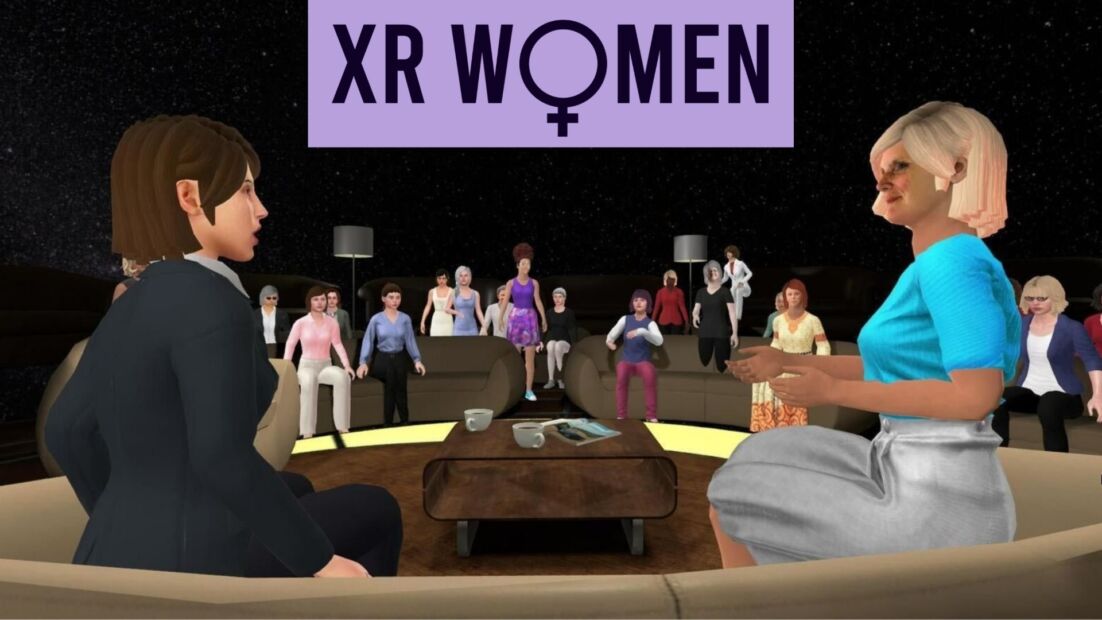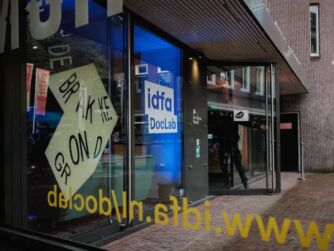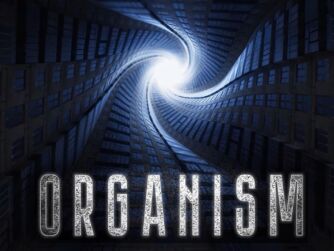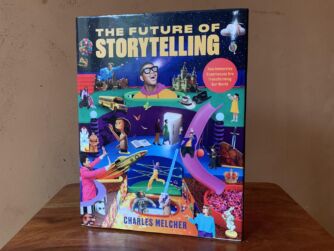Here’s my interview with Karen Alexander, one of the co-founders of XR Women, Consultant, & Executive Director of Academy of Immersive Arts & Sciences, that was conducted on Wednesday, June 11, 2025 at Augmented World Expo in Long Beach, CA. See more context in the rough transcript below.
This is a listener-supported podcast through the Voices of VR Patreon.
Music: Fatality
Podcast: Play in new window | Download
Rough Transcript
[00:00:05.458] Kent Bye: The Voices of VR podcast. Hello, my name is Kent Bye, and welcome to the Voices of VR podcast. It's a podcast that looks at the structures and forms of immersive storytelling in the future of spatial computing. You can support the podcast at patreon.com slash voicesofvr. So continue my series on AWE past and present. Today's interview is with Karen Alexander, one of the founders of XR Women. So XR Women has been meeting weekly within different virtual platforms, starting in Verbella, then moving on into Engage. And they've been cultivating this network of women within XR, like over 1,500 members. They can join and they have these weekly gatherings where different women in the community are giving lectures. And then at Augmented World Expo, they're typically awarding these awards. Starting in 2021, where they started to award prominent women within the XR community, featuring some of the work that is happening. We talk about the different awards that they're giving. as well as this weekly gathering. We also talk a bit about the Academy of Immersive Arts and Sciences, which she's the executive director of. It's kind of born out of what Ben Irwin was doing with the Polly's and the WebXR Awards. And so expanding that out into trying to feature the work that's happening in the context of immersive art entertainment and honoring those projects, really starting in WebXR and then have plans to kind of expand it out. And we also talk a bit about her PhD in American literature and so how that interest in experimental literature has been translating into different ways that the medium of virtual reality is being used. And so she's working with a lot of higher education entities and other consulting that she's doing in her work as well. So we're covering all that and more on today's episode of Voices VR Podcast. So this interview with Karen happened on Wednesday, June 11th, 2025 at the Augmented World Expo in Long Beach, California. So with that, let's go ahead and dive right in.
[00:01:53.635] Karen Alexander: Hi, I'm Karen Alexander. I am one of the co-founders of XR Women, which is a global community of women who work in and are passionate about XR. And we have been around since November 2020. We have amassed 1,500 members from 60 plus countries around the world. We meet every week in virtual worlds to hear from women, to connect with each other, to learn from each other. And to just build up that community of professional support, we have some other activities that we're involved in as well. I also do consulting on the side with higher ed companies and with XR startups. And I'm also the executive director of the Academy of Immersive Arts and Sciences, a new nonprofit.
[00:02:44.275] Kent Bye: Great. And maybe you could give a bit more context as to your background and your journey into this space.
[00:02:48.955] Karen Alexander: Ah, okay. Well, my professional background is in higher education, and I have a PhD in English literature. And so I am coming to this space kind of from an odd angle, but I jumped in, dove in headfirst in 2016 because I had discovered work by particularly women artists who were using XR technologies. And that really piqued my interest. And I am one of those who was inspired by Chris Milk's empathy machine declaration. And so I started out making 360 degree videos using consumer grade cameras. And they did a lot of work in the community, teaching children and youth how to create using XR tools. The pandemic changed everything for me. And then most of my work was remote, but I've stuck around and I'm still here nine years later. And I have just tried to educate myself along that way as much as possible through going to events, watching webinars and videos and reading and learning.
[00:04:02.714] Kent Bye: Yeah, so take me back to November of 2020, still in the throes of the pandemic and people often in lockdown. What was the larger context that XR Women was founded? Maybe tell a bit more context around that founding story.
[00:04:18.300] Karen Alexander: Sure, sure. Well, some of us were part of the women's community in another organization, and we were trying to make some change there in terms of representation of women. at conferences and events. We found that that wasn't really happening through that venue, so we decided we would just do something on our own. We said, you know, we really must be crazy to think that we're going to meet up, we're going to get together every week in VR and hear from each other, learn from one another, and connect. But we did it, and now we have had 220 events over 200 women speakers. But it was really at first that issue of representation. We didn't see the needle moving on that. We would see panels that were all men, all the keynote speakers being men, and just really not much representation of women, even though we knew there were women who were doing amazing work in the space. We've expanded out from that since then. But that's sort of the core of what we do is those regular meetups in virtual worlds.
[00:05:30.159] Kent Bye: MARK MANDELBACHER- I know you started in Altspace VR and then eventually moved over into Engage. And I don't know if there's other platforms, but maybe you just talk a bit about what's it been like to meet on this weekly basis for all these hundreds of events now.
[00:05:45.325] Karen Alexander: Yeah, well, you know, we actually started out in Verbella through the Immersive Learning Research Network, who gave us a home, gave us a place to start out. We had a little XR Women hall there. And then we had the opportunity to move to Engage where we now have one space that we use regularly for our events. We did last year a spatial computing business showcase where we featured nine women-led XR businesses in a virtual expo hall with 3D recordings of the avatars of the women leaders of those companies giving their pitches. and we're also in frame vr where we have our xr women museum and gallery the museum documents our events we have the posters for the events featuring women speakers up on the wall we've run out of space and had to move to a different frame environment for that and we're about to run out again but we wanted to have a place where we could showcase them and if people were saying oh, we can't find women speakers, we say, well, you know, come to this museum and look around and you'll see who some of these women are, what it is that they're working on and that they have spoken on, and you'll be able to find some there. We also created the gallery, the art gallery in frame. A bit more recently, we've had about four or five exhibitions by women artists featuring 3D art, and they last for several months each. Awesome.
[00:07:19.065] Kent Bye: I know starting three or four years ago, you had here at Augmented World Expo, you're giving away some awards to different XR Women creators and makers. And maybe just give a bit more context to the awards that the organization of XR Women are giving out here.
[00:07:34.758] Karen Alexander: Well, so early on, I had this idea that it would really boost women's careers and give them the confidence to go on if they were recognized for their work through some sort of awards. So we gave away our first awards in 2021. Less than a year after we started, so we are now about to give away our fifth annual awards. And we decided on three categories. One is innovation, which of course is important in an industry like XR. And then there's the real world impact award. which is for women who are making a difference in the real world through their work in XR. And then the final category is Trailblazer, which is for someone who is blazing a path for others to follow. And these categories are fairly loosely defined on purpose because we know that things are rapidly changing. And we wanted to have the flexibility to award them to people who might be doing something a little bit out of the norm.
[00:08:47.303] Kent Bye: Yeah, and maybe if you'd be willing to share some of the winners this year at Augmented World Expo of 2025.
[00:08:53.885] Karen Alexander: Sure, sure. Well, the winner of the Innovation Award is Jocelyn Tan, who is the CEO and founder of Sisu VR, and she does immersive training for things like active shooting, for workplace issues, for harassment. She has patents on things like voice-driven characters in XR, and she has published work on harassment in virtual worlds. And she has also done a lot of work with organizations like the XR Safety Initiative. She's been very involved with them and has helped to author some of their standards. The Trailblazer Award is going to Celeste Lear, a pioneering VR DJ, but more than that, an experienced creator. who is a producer who brings others into the fold and provides opportunities for them. And she's very passionate about sustainability and has tried to work on using XR to raise awareness about sustainability. And she's one of our longest standing members. So we're really excited to give her that award. The Real World Impact Award is going to Diana and Jerry. who is based outside Nairobi, Kenya. She is the director of XR Girls Africa, which is a program of the Africa VR Campus and Center. And we met Diana and the others there at the Africa VR Campus and Center a couple of years ago because they were also using Engage. And we went to some of their events. They came to some of our events. We actually even had the girls, these teen girls who are based in a village in Kenya. They put them in VR headsets and teach them about the metaverse, how to run events there. We had them come and do a presentation for XR Women sometime last year. So we've had this relationship with them. And I think... there probably couldn't be a better example of real-world impact, both through the work Diana has done in introducing these teen girls to XR, but they're also doing things like setting up shops to sell crafts in VR, crafts that they've made, really crafts that they've made, sell them in VR. She's also led them in mushroom farming. They've had several harvests there of their mushrooms, and they're going to create a digital twin of their mushroom farm, as I understand it.
[00:11:43.004] Kent Bye: So we're here at Augmented World Expo. And there's a booth for XR Women. So maybe you could just talk a bit about what kind of conversations you're having with attendees here this year at Augmented World Expo.
[00:11:53.372] Karen Alexander: Yeah, sure. Well, it's been great. We have brought members of our two student chapters at the Savannah College of Art and Design and the Ringling College of Art and Design. We wanted to give them the opportunity to come here and interact with others professionally. and they've been helping to staff our booth and they've been amazing i'm so impressed by them but people come up and usually the women are like oh i didn't know this existed i'm so happy to see this is here and we get varied reactions from men sometimes it's um oh i'm a man and uh you know so this is not for me but we like to tell them no men are always welcome at our events Welcome to join. Membership is free and you can join as an XR woman or as an ally. And we really value our allies and we welcome men with open arms to our events. So we try to convey that message. But some of them come up and they're like, wow, this is great. I have a daughter and I want her to have a future with this technology or something of the sort there.
[00:13:02.603] Kent Bye: And you mentioned that you're also involved in a new nonprofit of the Academy of Immersive Arts and Sciences. And maybe you could elaborate a little bit more on what your role is in this new nonprofit.
[00:13:13.308] Karen Alexander: Sure, sure. Well, I am still very much a part-time executive director there of the Academy, which is a nonprofit, and it exists to promote the immersive arts and sciences through things like advocating for open standards. We also host various sorts of events, such as the Metatraversal series, which facilitates portal crawls to demonstrate interoperability or the lack thereof in going between virtual worlds. We also have Ready Player Golf, which is a charity golf tournament. Last year, we raised $8,000 for the Children's Cancer Research Fund's Big Dreams Tour run by James Arrigo to benefit children who are afflicted with cancer and to help with research on those problems. We are the fiscal sponsor for the Poly Awards, the Poly Immersive Awards. And so we give them the opportunity to do fundraising from our status as a nonprofit entity. And the Poly Awards has multiple categories honoring excellence in XR.
[00:14:30.760] Kent Bye: You mentioned that you're also doing some consulting or other work within the context of higher education. Maybe you could just elaborate a little bit more on what type of intersections of the XR industry that you're particularly interested in both investigating and helping out on.
[00:14:44.196] Karen Alexander: Sure. Well, because I have a background in higher ed, that's a space that is really of interest to me. I know higher ed, and so I've worked with universities, community colleges, institutions of various sizes to help them figure out how they can adopt this technology and how they can bring it into their existing structures. So thinking about things like which departments are going to own the project or to manage the headsets, teaching faculty what they can do with the technology and how they can incorporate it into their courses, thinking about the larger sort of structural issues that cut across the silos that are in higher ed. And really, as we know, XR is a technology that can be used for just about anything. It applies to any industry. And so higher ed is not designed for that kind of work in general. But we're seeing more and more labs crop up. It's really exciting to see some of the things happening in the higher education space with XR now, after nine years in this industry, I can say that. And the work that I do with companies tends to be along the lines of training. Using XR for training, safety training is a big one. In working with XR startups, I like to focus on policy development that will help companies comply with standards such as SOC 2 or ISO 27001, and to build up the processes that will back up those policies, so they're not just written as policies. but they can be operationalized so that they will actually be following what they should follow in order to have those sorts of certifications. That's something I'm interested in. But I've also worked with XR startups on doing things like immersive learning design for their enterprise clients, that sort of thing.
[00:16:54.129] Kent Bye: Great, and finally, what do you think the ultimate potential of virtual reality might be and XR, spatial computing, and what it might be able to enable?
[00:17:05.313] Karen Alexander: Yeah, well, I tend to think of XR as a medium. And I think it is all about ways of conveying information, creative products, and of connecting people together. And that for me is really where the magic happens, is being able to gather with people in real time from anywhere in the world and to have conversations in a spatial relationship with them. There's something special that happens when people are, you're standing next to someone or you decide to come sit down next to someone in a virtual world. being able to move from one conversation to another as we do in the physical world. So I do love the vision of having a form factor that is more like regular glasses that we can wear in our everyday life and have them augment our experience of the physical world. without looking down at something like a smartphone. We've got our heads up, we're looking around, and we're experiencing the world in a very rich way. So, context aware, content, being able to see artworks or historical artifacts in certain locations and to use those sorts of glasses for communication with others. So I'm really excited about that. I think that in some ways it is the ultimate medium in that it brings together a lot of things that have been done in other ways before. And, you know, after nine years, I can say I'm fully invested in the space. You know, we all know that it's been a hard road to hoe for many of us, but I believe in it. I believe that Technology should improve people's lives. That's the purpose of it, and I think that XR can do that when used properly.
[00:19:18.159] Kent Bye: Just a quick follow-on on the idea of the ultimate medium or the final medium. You have a background in PhD in English literature, and so we didn't really talk much about the intersection there, but how does the PhD in English literature interface with your experiences within the XR medium?
[00:19:36.246] Karen Alexander: Yeah, well, the work I did for my dissertation involved experimental literature, minimalist American writing, things like poems with one word, or sometimes things that sort of crossed over into another medium. So poems with no words at all, with just color marks on a page. And so on the one hand, I'm really interested in those sorts of intersections, the ways that you can bring different forms together to serve some of those purposes, to tell stories, to express things about the human condition or the world that aren't necessarily traditional. So the experimental aspect is really exciting to me. And some of the work I looked at in my dissertation was like digital poetry or electronic literature, which was very, very new at the time. And that wasn't my primary focus, but that was one of the threads that kind of got me here to where I am now.
[00:20:42.831] Kent Bye: OK. Yeah, thanks for that. It's very fascinating. I see quite a lot of poetic dream logic being used as a way of telling stories within VR. So I feel like it's like walking into a dream. And the grammar of that type of symbolic dream logic is really quite interesting, especially ways that I'm seeing immersive storytellers lean more and more into that type of poetic imagination or magical realism type of techniques. So yeah, interesting. Thanks for sharing that little bit of detail. And just also give you one last opportunity, if there's anything else that's left unsaid that you'd like to say to the broader immersive community.
[00:21:13.809] Karen Alexander: Well, I would first of all like to say, you know, support the work we're doing at XR Women. Come to our events, learn about the amazing work that women are doing in the space. Help us build this chapter, the student chapter that we're going to be launching today at our awards ceremony with XR Girls Africa and to create a brighter future for women in the industry. And I also want to say, keep up the good work. I think we're going to get there. Keep the faith. I think that we will collectively come together to really make this space something that is viable for creators, for people who have creative business ideas, I think there's just a world of potential with this technology, and I think that it will take hold. We've heard it's going mainstream. I hope that that is the case, even if it's not right now. I think that we will get there, and I'm very much inspired by the efforts of technologists to make these things happen.
[00:22:31.195] Kent Bye: Awesome. Well, Karen, thanks so much for joining me here on the podcast. And I really appreciate all the work that you're doing there at XR Women. And yeah, it's just really great to hear this kind of weekly gathering that you've been holding, but also creating a space for women to network and to meet each other and to have a context where they can also share their ideas. And yeah, just really glad that XR Women exists and really cool to see all the work that you're doing here in the wider industry. So thanks again for joining me here on the podcast to help break it all down.
[00:22:56.633] Karen Alexander: Thank you so much, Kent. And I have to say that I very much appreciate the work that you have done. I mean, it's really hard to imagine this industry without what you have produced and helped us to learn about what other people are doing. And not only that, but the philosophical reflections that you have, the ethical perspective. It's really important. It matters. So thank you.
[00:23:19.406] Kent Bye: Yeah, quite welcome. Yeah, thanks. Thanks again for listening to this episode of the Voices of VR podcast. And if you enjoy the podcast, then please do spread the word, tell your friends, and consider becoming a member of the Patreon. This is a supported podcast, and so I do rely upon donations from people like yourself in order to continue to bring this coverage. So you can become a member and donate today at patreon.com slash voicesofvr. Thanks for listening.




